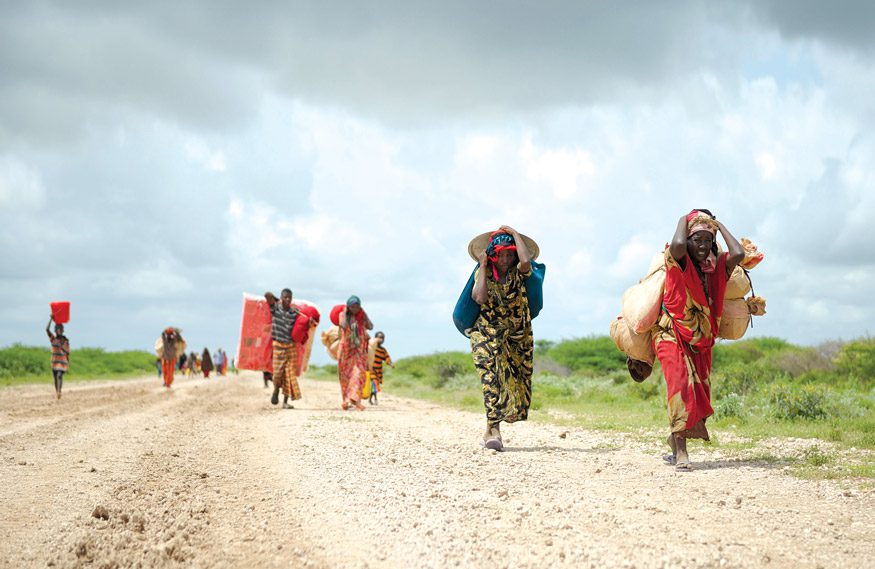Washington, D.C. – A new report released today by the United Nations states that 821 million people suffered hunger in 2017, or 1 in 9 of the world’s people. After decades of gradual decline, this marks the third year in a row the hunger rate has increased.
According to the report, State of Food Security and Nutrition in the World 2018, conflict and climate change are driving this reversal. See also Bread for the World Institute’s 2017 Hunger Report, Fragile Environments, Resilient Communities on the impact of conflict and climate change.
“We applaud Congress and USAID administrator Mark Green for their continued commitment to addressing global hunger, and for ensuring that development assistance remains an important component of the U.S. foreign policy and national security strategy,” said Rev. David Beckmann, president of Bread for the World.
“We urge the leadership of the House of Representatives to pass the Global Food Security Act. The Trump administration supports the bill, the Senate has already approved it, and a bipartisan list of 130 members of the House have cosponsored it. This legislation would continue successful U.S. programs of assistance to struggling farm families in the world’s poorest countries,” Beckmann added.
The new report notes that the world continues to make progress against child malnutrition, but that more than one-fifth of the children under the age of five in developing countries are stunted. Chronic malnutrition contributes to an early death for millions of children and to irreparable damage to the brains and bodies of those who survive.
Hunger in conflict zones such as Syria, Somalia, and South Sudan requires not only humanitarian aid, but also diplomatic efforts to moderate conflict and agricultural assistance to help farmers struggling with climate change.
The U.S. government’s Feed the Future program provided agricultural assistance to nearly 11 million farmers and nutrition assistance to more than 27 million children last year. But the Global Food Security Act, which authorizes funding for the program, will expire on September 30 unless the House of Representatives acts.



